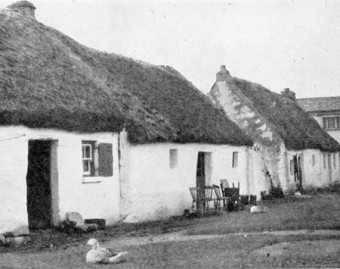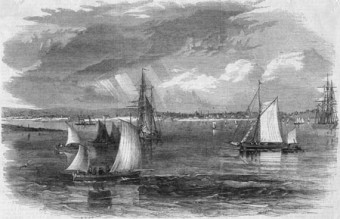Search Results for 'Shilling'
24 results found.
O’Toole’s house in the Claddagh

The house with the chairs outside was O’Toole’s near the top of Rope Walk in the Claddagh. The photograph was taken c1925. It was obviously a fine day because of the chairs being left out for people to sit in the sun. Beside them you can see a washing tub, and on the front of the house to the right, there is some washing hanging out to dry. Occasional geese can be seen sunning themselves. These were typical Claddagh homes before the village was knocked down and rebuilt.
The sea, the lifeblood of the town

In the 13th century the Anglo-Normans settled here and built their castle and town and called it Baile na Srutháin because of its many streams. They later changed the name to Galway after the river on which it stood, and from then on water was a major asset to the town’s development. These streams were to supply many fish, turn many mill wheels, and give access and egress in ages before roads were built, canals dug, or railways laid.
Old Kilkenny
Petrol was strictly rationed during the Emergency too, with the lion’s share being reserved for vital public transport.
Galway vintners

During the reign of Edward VI, when the Puritans controlled Galway, it was provided that “No man should keep an Ale House without being licensed, under penalty of three days imprisonment and a fine of twenty shillings”. It was added: “But because many Ale House keepers in those days were not able to pay that Forfeiture, and it was seldom levied by reasons of poverty, which made people unwilling to prevent the offenders.” Therefore a further punishment was added by statute during the reign of Charles I which not only inflicted the forfeiture of 20 shillings to the use of the poor, to be levied by the constable or church warden, by warrant of a justice before whom the offence was proved, and which distress may be sold three days afterwards; but it provided that if no distress could be taken, the justice should deliver the offender to the constable to be whipped. For the second offence, the offender was to be committed to the House of Correction for a month. A married woman who kept an ale house without licence made her husband liable for punishment.

